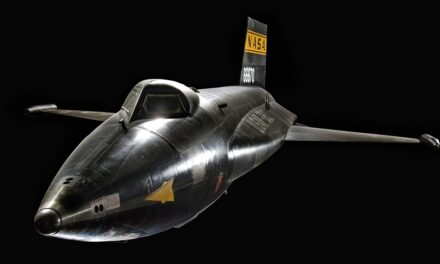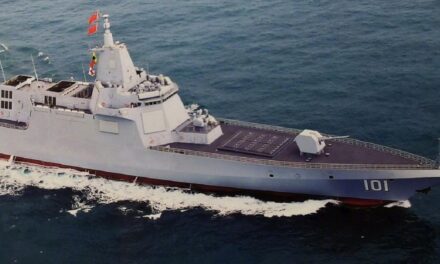We support our Publishers and Content Creators. You can view this story on their website by CLICKING HERE.
It’s been a really bad few weeks for Russia.
On December 26, Finnish authorities boarded a Russian ship suspected of sabotaging an undersea electricity cable connecting Finland with Estonia by dragging its anchor along the sea floor. The Kremlin will, of course, deny all knowledge of the sabotage.
On December 25, an Azerbaijani Airlines plane was, in all likelihood, shot down by a Russian missile. It was a mistake, to be sure, but Baku wants an apology nonetheless, one that it’s unlikely to get from a Russian leadership that aspires to infallibility.
But that’s not all.
On December 24, a Russian military cargo ship sank in the western Mediterranean as a result of engine-room explosions that Russia claims were an act of terrorism but which could just as easily have been produced by malfunctioning machinery and neglect. In any case, it boggles the mind to think that the Ukrainian secret services would have been able to pull off such a feat. If so, then no one and nothing inside or outside Russia is safe—a point the Ukrainians already made by assassinating a lieutenant general in Moscow a few weeks ago.
On December 15, two Russian tankers produced large oil spills off Russia’s Black Sea coast after a storm broke one in half and caused the other to run aground. A mere ten days later, Russia’s ever-alert Krasnodar regional authorities declared a state of emergency.
The ship incidents demonstrate just how decrepit—and possibly vulnerable—Russia’s vessels are. It’s bad enough when one tanker has an accident, but for two to suffer such a fate is downright embarrassing for a self-styled superpower.
And it’s even worse when a cargo ship goes under just nine days after, and another vessel gets caught, possibly red-handed, causing mayhem that borders on outright war.
The tragic deaths of many of the Azerbaijani plane’s passengers testify to the very opposite of the Kremlin’s self-image: a proneness to making tactical and strategic blunders, not the least of which was Russia’s self-elected president Putin’s idiotic decision in February 2022 to launch an unprovoked and unwinnable war that is close to costing Russia a million dead and wounded soldiers and which has set it back decades economically and socially.
Russia used to resemble Europe’s poor cousin. It now resembles North Korea, China’s poor cousin. If the ships keep on sinking and the planes keep on mistakenly being shot down, Putin’s Russia will soon resemble the Third World’s poor cousin.
About the Author: Dr. Alexander Motyl
Dr. Alexander Motyl is a professor of political science at Rutgers-Newark. A specialist on Ukraine, Russia, and the USSR, and on nationalism, revolutions, empires, and theory, he is the author of 10 books of nonfiction, including Pidsumky imperii (2009); Puti imperii (2004); Imperial Ends: The Decay, Collapse, and Revival of Empires (2001); Revolutions, Nations, Empires: Conceptual Limits and Theoretical Possibilities (1999); Dilemmas of Independence: Ukraine after Totalitarianism (1993); and The Turn to the Right: The Ideological Origins and Development of Ukrainian Nationalism, 1919–1929 (1980); the editor of 15 volumes, including The Encyclopedia of Nationalism (2000) and The Holodomor Reader (2012); and a contributor of dozens of articles to academic and policy journals, newspaper op-ed pages, and magazines. He also has a weekly blog, “Ukraine’s Orange Blues.”

 Conservative
Conservative  Search
Search Trending
Trending Current News
Current News 





